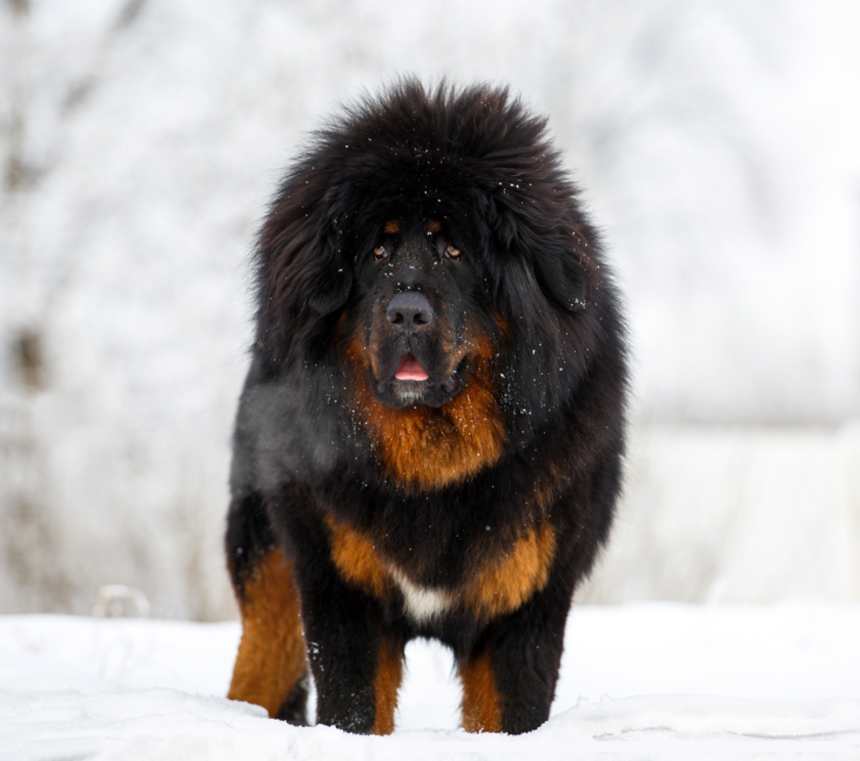Do Tibetan Mastiffs have health problems?

Tibetan Mastiffs are generally healthy dogs, but like all breeds, they can be prone to certain health issues, including:
- Hip and/or elbow dysplasia: Hip and elbow dysplasia are two of the most common skeletal diseases seen in dogs. They are similar diseases in which either the hip or elbow joint has grown abnormally or is misshapen. The abnormal shape prevents the joints and sockets from adequately meeting one another, resulting in rubbing and grinding instead of sliding smoothly. Though the main complication with hip dysplasia is joint instability, the abnormalities present in elbow dysplasia often result in pieces of bone and/or cartilage breaking loose and irritating the joint tissues. Over time, the rubbing from dysplasia can cause a variety of issues, such as pain, lameness, and secondary osteoarthritis. Surgery can be done to fix the joint if diagnosed before the onset of arthritis.
- Eye disorders: Tibetan Mastiffs may develop entropion, a genetic defect where one or both eyelids are inverted or roll inward and rub on the surface of the eye, and progressive retinal atrophy (PRA), a progressive degenerative disease affecting the retina that eventually leads to blindness.
- Others: Tibetan Mastiffs may also develop gastric dilatation-volvulus, a sudden, painful, and life-threatening swelling and twisting of the abdomen; hypothyroidism, a thyroid malfunction that results in low hormone production and could cause obesity, low energy, and a brittle coat; overbites and underbites; and seizure disorders such as epilepsy. To identify some of these issues, a veterinarian may recommend hip, eye, and imaging tests.